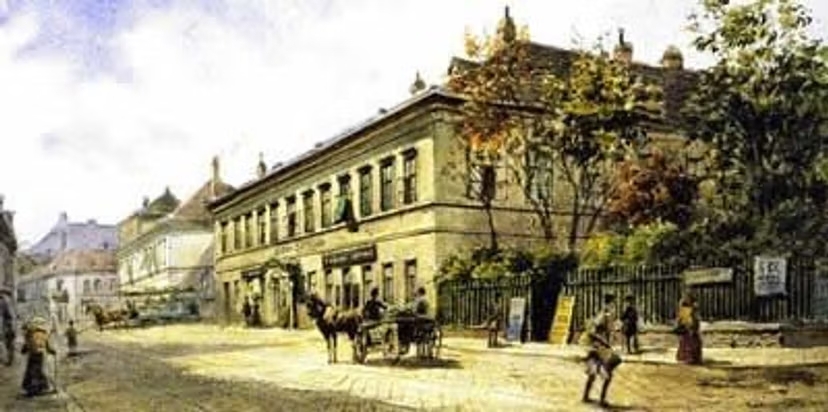
The Viennese citizen Ferdinand Zögernitz has a Biedermeier-style residence built on former imperial property. The old Casino Zögernitz was opened on June 21, 1837 and from then on, with its "richly decorated hall" and beautiful garden, became a popular meeting place for the best of Viennese society.
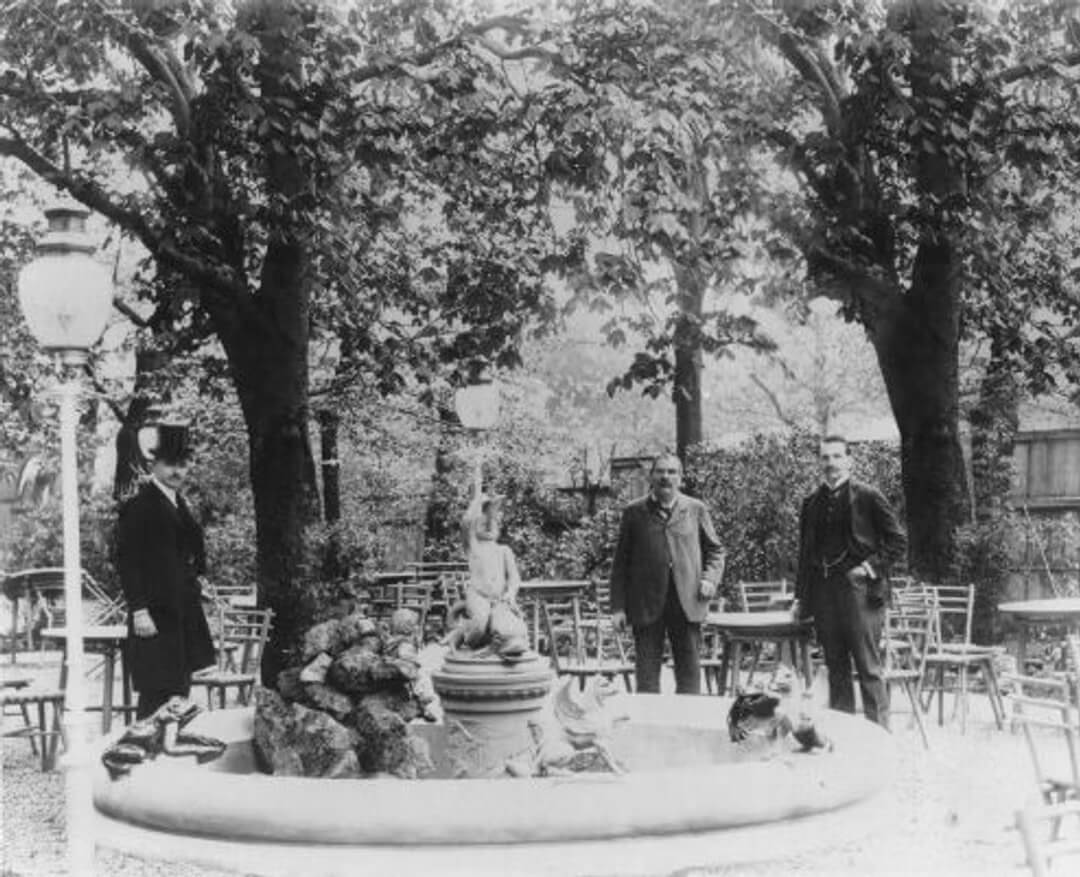
In the summer of 1850, Johann Strauss organized a large Viennese folk festival "for his benefit" at the Casino Zögernitz with a glittering ball, impressive illumination and fireworks. As he had learned from his father, he also gave this celebration an ostentatious title: "Splendid Scene from the Residence". For the ball, the young Strauss promised a new waltz as an attraction: "Johannis-Käferln". It is quite possible that the guests also got to see real "Johannis-Käferln", because that is what fireflies are called in Vienna, and they can be seen very often and in large numbers on pleasant summer nights, especially in the Döbling area.
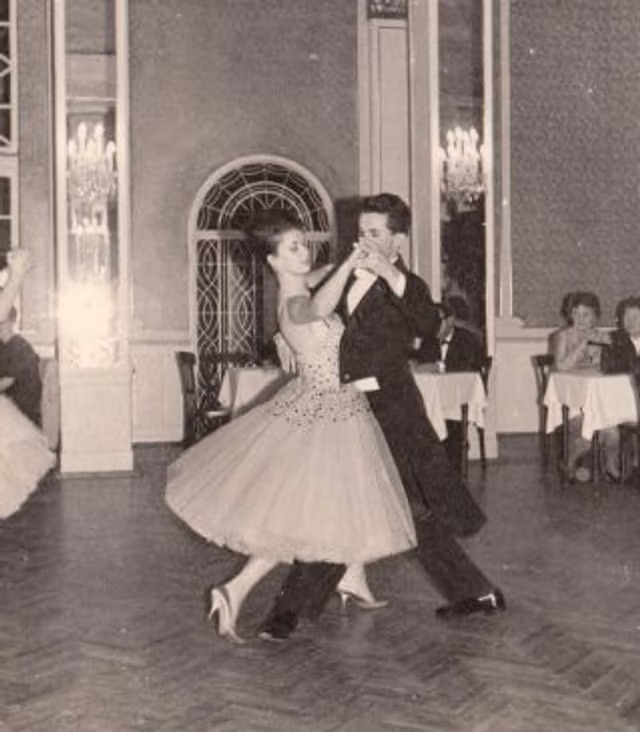
In the following years after 1868, folk singers and comedians such as Pepi Steidler, Luise Montag, Josefine Schmär and the "Alte Drahrer" Guschelbauer were part of the entertainment program. From 1880, the Straußsaal was also the venue for numerous concerts by the brothers Johann and Eduard Strauß as well as the then house bandmaster Fahrbach.
From 1870-1903, the terminus and depot of the horse-drawn tramway was located on the site of the dining garden, which was later rebuilt. The terminus was only moved to the Hohe Warte after the streetcar was electrified.
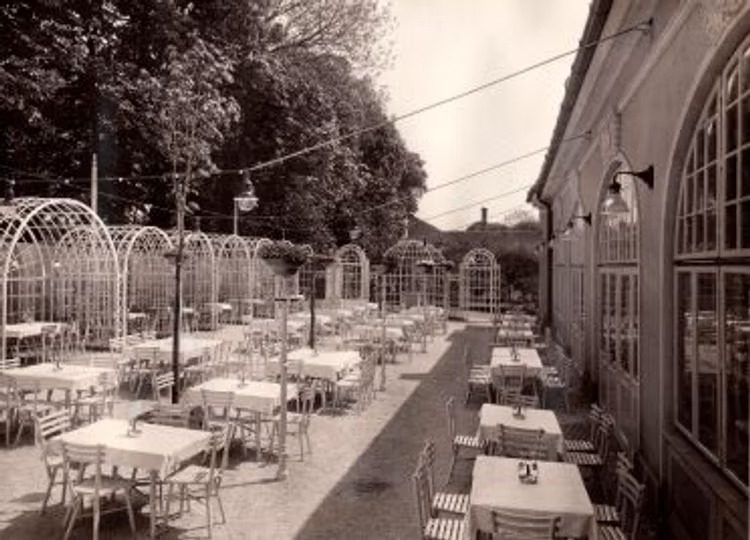
In 1913, the restaurateur couple Alfred and Maria Stegbauer took over the casino and set up an open-air cinema in the garden for several years from 1920. As the casino was badly damaged during the First World War, they decided to build a new building in 1926, in response to a frequently expressed wish, especially from the people of Döbling. The new building was adapted to the old casino in a somewhat modernized old Viennese style.
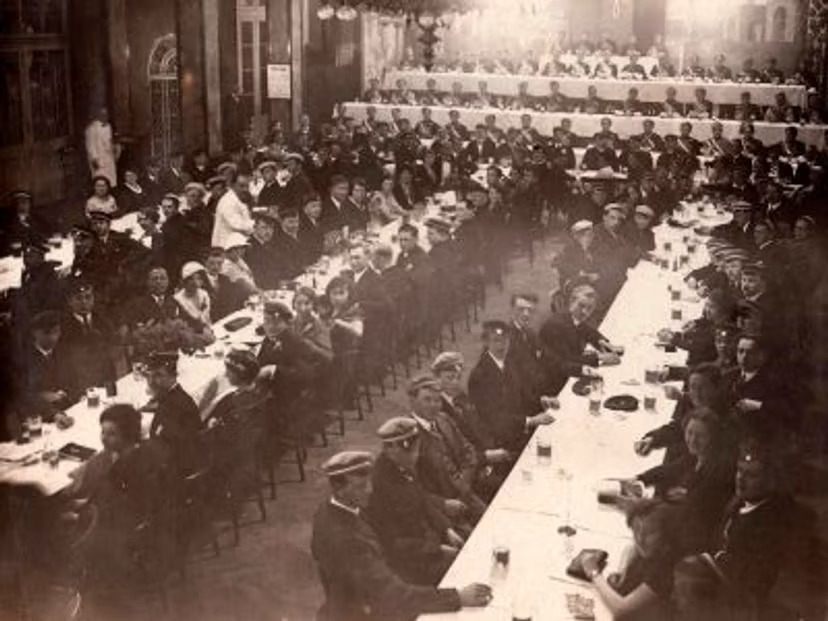
From May 1945 onwards, up to 600 Soviet soldiers celebrated their victory here with receptions and garden parties. After the division of Vienna into four zones, the Americans held exuberant triumphal celebrations in the casino.
After the withdrawal of the foreign occupying powers, the Casino Zögernitz was revived. The Viennese carnival, balls, little dances, summer parties, meetings of political parties, theater and opera performances returned.
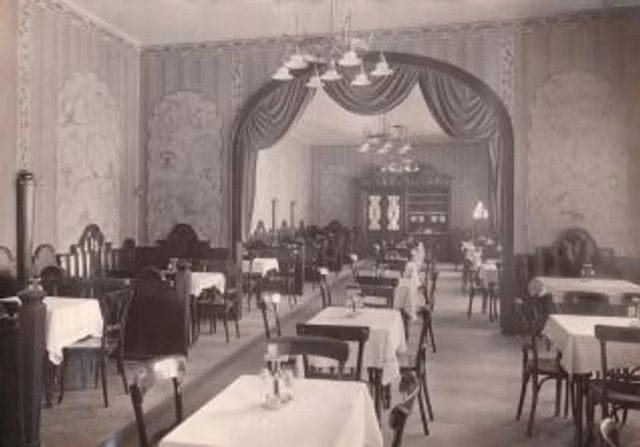
The adjoining hotel, where artists such as Marcel Prawy, Helge Rosvaenge, Walter Wallner etc. stayed, was built in 1950.
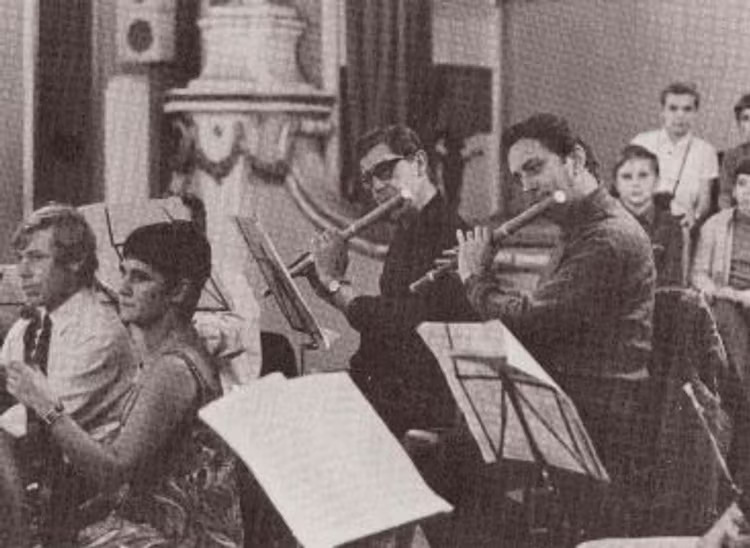
Major recordings of early and classical music have been made in the Strauss Hall since 1967. Nikolaus Harnoncourt performed here with his "Concentus Musicus" and many famous opera singers and choirs honored the house.

Casino Zögernitz has belonged to Rudolf Stegbauer KG since 1976. After the death of Rudolf Stegbauer, the property passed to his two sisters, who died a few years ago. They bequeathed the Casino Zögernitz to the Archdiocese of Vienna.
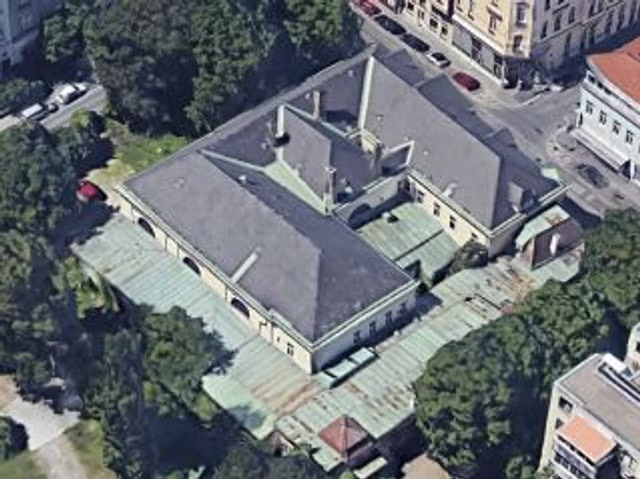
The now historic old building and the entire property are in poor condition and have been vacant for years. In recent years, various owners have built makeshift sheds around the old building and the site has become overgrown.
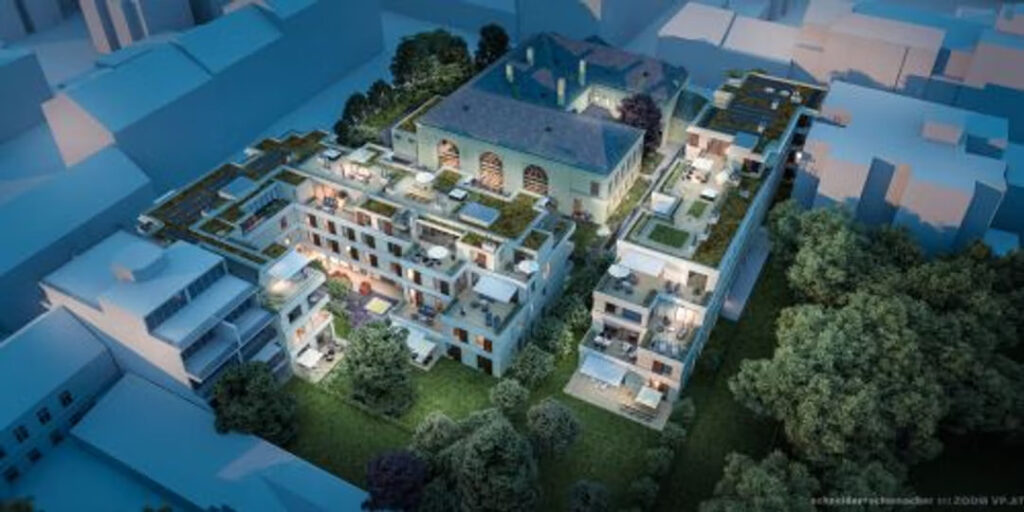
Casino Zögernitz has been listed as a historical monument by the Federal Monuments Office since February 2008.
In the same year, real estate developer Hermann Rauter acquires the property and develops a concept to revitalize the old casino, financed by the construction of new apartments on the derelict site.

A gentle historical restoration in close coordination with the Federal Monuments Office, both in terms of construction and function, has begun.
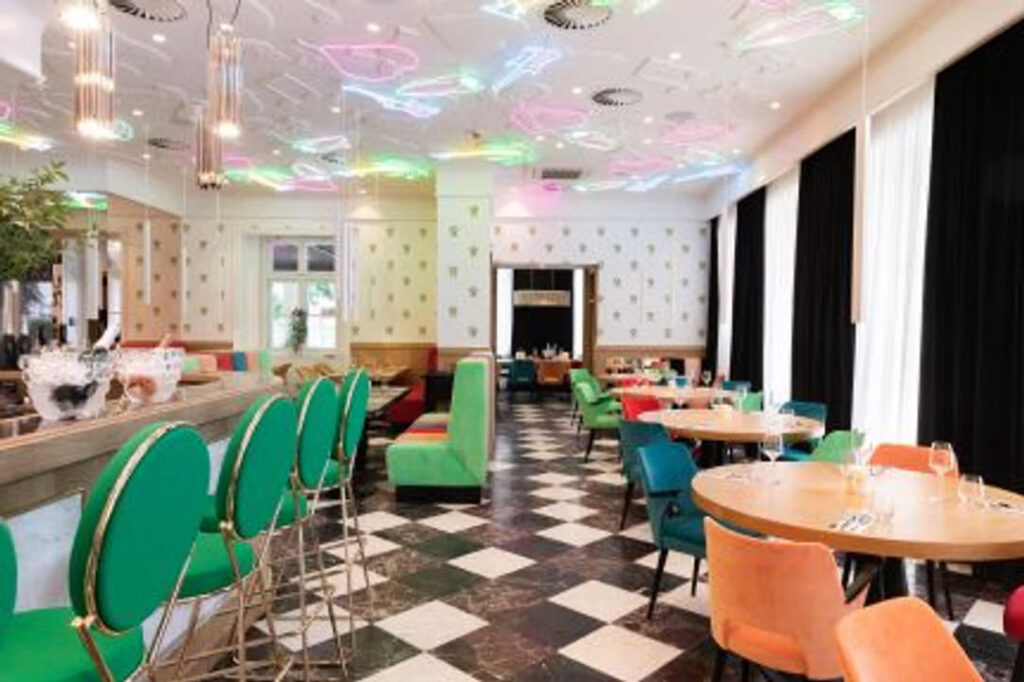
Since June 2021, the cozy guest garden is finally back in operation and an enrichment for Döbling and the whole of Vienna. The adjoining restaurant, run by restaurateur and award-winning chef Stefan Glantschnig, delights guests with "simple Viennese cuisine at the highest level". None other than star architect Denis Kosutic is responsible for the extraordinary interior design.
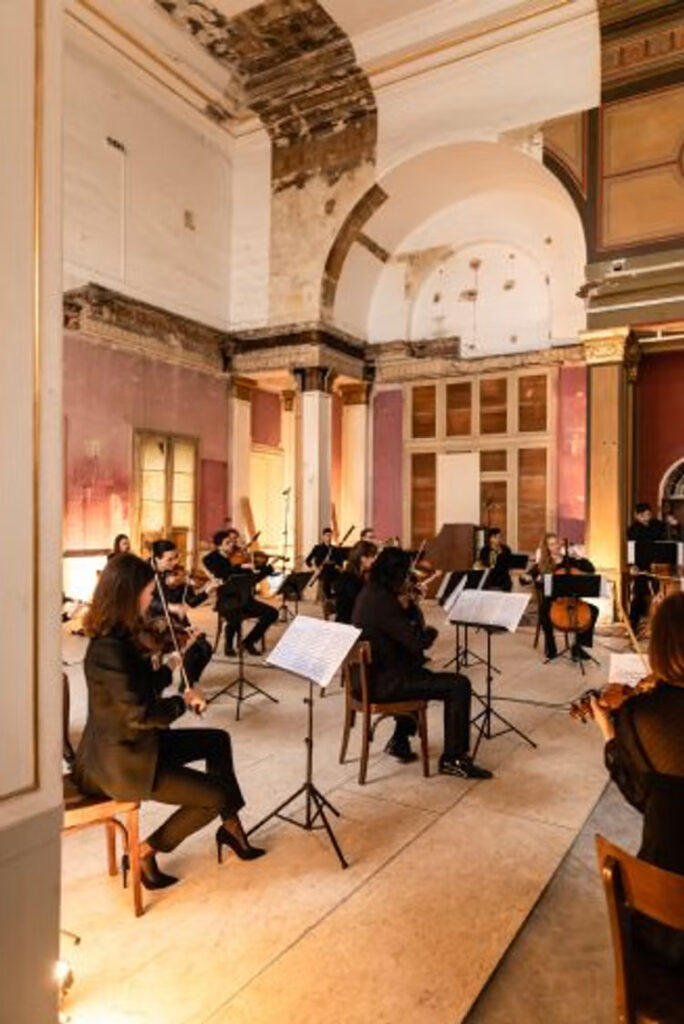
The renovation of the historic hall is progressing. In order to meet the requirements of the Monuments Office, the original wall paintings are being restored and the hall is also being returned to its original architectural state. In order to test the acoustic brilliance and support musicians during the corona crisis, "construction site concerts" are being held from time to time.
Planned opening: February 2023
Dienstag- Sonntag: 10:00 – 18:00
Feiertage: 10:00 – 17:00
Ab 18:00 Uhr: Eintritt zur Strauss-Ausstellung mit Nutzung des Audio-Guides
20:00 Uhr: Eleganter Sektempfang im Oktagon
20:30 Uhr: Live-Konzert im Strauss-Saal mit einem erstklassigen Ensemble
Dienstag – Samstag
11:00 – 22:00
Küche:
12:00 – 14:00
17:30 – 21:00
Feiertag (außer Sonntag)
10:00 – 17:00
Küche:
12:00 – 17:00
.
Tuesday – Sunday: 10:00 – 18:00
Public holidays: 10:00 – 17:00
From 18:00: Admission to the Strauss exhibition with use of the audio guide
20:00: Elegant champagne reception in the Oktagon
20:30: Live concert in the Strauss Hall with a first-class ensemble
Tuesday – Saturday
11:00 – 22:00
Kitchen:
12:00 – 14:00
17:30 – 21:00
Public holiday (except Sunday)
10:00 – 17:00
Kitchen:
12:00 – 17:00
.